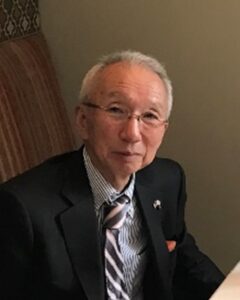73rd MUMEI-JUKU(10/7/2025)
Theme: The Future of Manufacturing Pioneered by AM
Guest Speaker: Dr. ATSUHI MAEKAWA (Visiting Professor, Osaka University)
<About AM>
As you know, AM (additive manufacturing) is a technology that was originally called 3D printing. Currently, it has developed beyond prototyping and simple applications to become an industrial technology that will support prosperity in the next era. It uses lasers and electron beams to layer metal powders and various materials to create lightweight, dense structures with high functionality. This technology is gaining attention in fields such as aerospace and medicine, and I have also heard that it is beginning to attract attention in the construction industry.
It is called additive manufacturing (AM) because of the unique characteristics of the technology of layering. In fact, this technology is applied to food processing at the Osaka-Kansai Expo, where artificial meat made from muscle structures was on display. It remains to be seen whether this technology will be put to full-scale practical use in the future, but it has the potential to bring about major advances in food processing.
Governments around the world are placing great importance on this technology and providing significant support. A few years ago, the Biden administration in the United States launched its first policy project for the development of AM, encouraging American companies, especially large corporations, to actively purchase products made with AM. Germany, which had already been a leader in metal AM, has recently stepped up its efforts, developing new products in the aerospace, medical, and other fields. China is also advancing AM as one of the core technologies of its “Made in China 2025” initiative. Under President Xi Jinping’s military-civil fusion policy, AM is said to be a key technology in the effort to utilize all technologies for military purposes as well. I am confident that AM will become one of the core industries that will enable Japan to remain competitive in the future.
It has been pointed out that an era in which AI will have its own consciousness is approaching. I believe that the time has truly come to seriously consider long-term policies while leveraging the strengths cultivated through robots and AI.
<Changes in American consciousness>
I currently support a certain hypothesis. It may be wrong, but I believe that what President Trump is doing now is a ‘reconsideration of American-style liberalism’. Japan has spent the last 80 years introducing the American system since the end of World War II, but it seems that the United States itself is now questioning the excesses of this liberalism and trying to change.
Excessive individualism causes social division, excessive commercialism leads to income inequality, and the promotion of DEI (diversity, equity, and inclusion) is causing new conflicts. In the United States, there may be a sense of regret that prioritizing certain groups has created broader social problems. Similar signs are beginning to appear in Japan as well. Perhaps we have reached a stage where we need to reevaluate excessive individualism.

